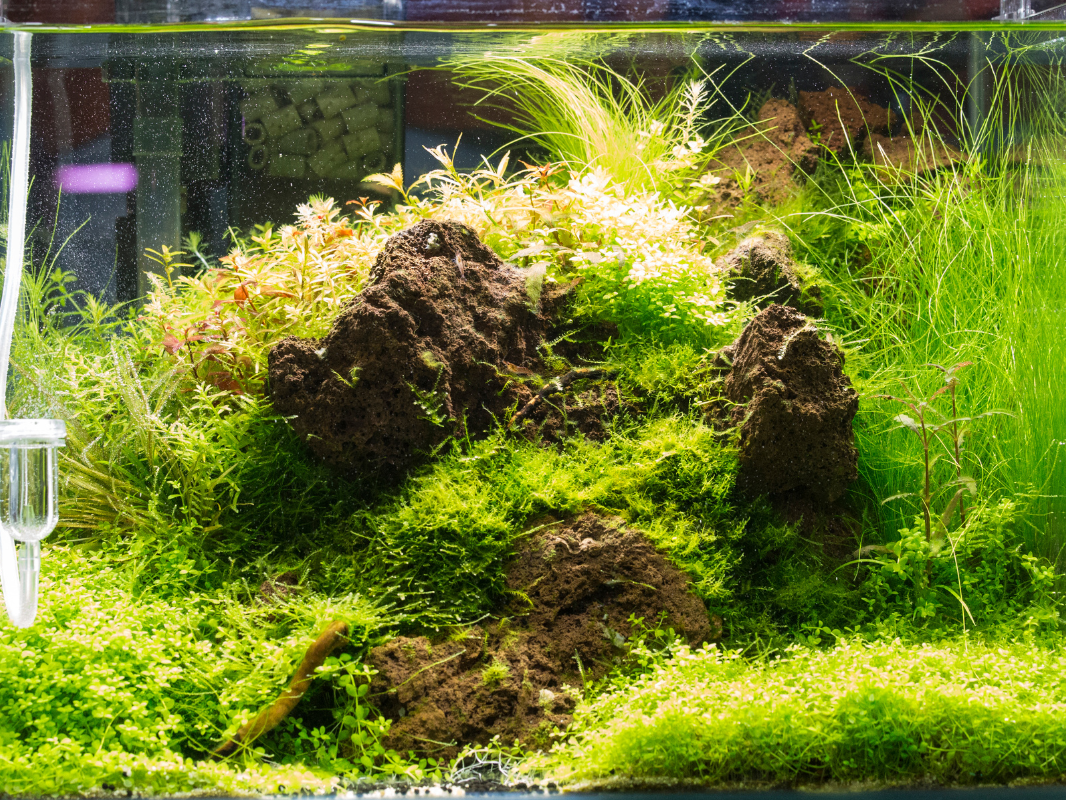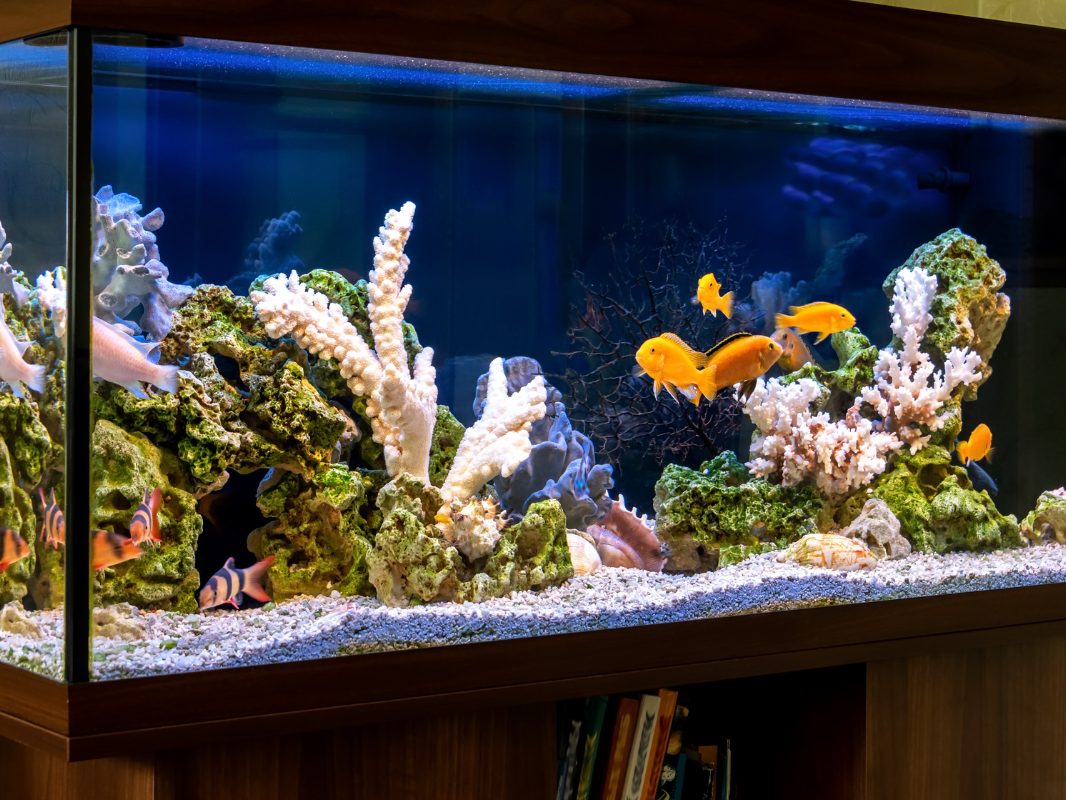Aquariums are not just glass boxes filled with water; they are vibrant ecosystems that demand our attention and care. As a millennial, you understand the importance of a well-maintained habitat for your aquatic friends. Freshwater aquarium cleaning might seem daunting, but it’s a rewarding experience that ensures the health and happiness of your fish. Let’s dive into the world of aquarium maintenance with a fresh perspective.
Jump to:
Introduction to Freshwater Aquarium Cleaning
Maintaining a freshwater aquarium is more than a chore; it’s a part of the fascinating journey of aquatic life. Understanding the significance of a clean tank and the basics of the cleaning process is the first step towards a thriving aquatic environment.
Register for our latest in-depth reviews and product round-ups from the experts
Enter your email address below to receive our twice monthly reviews emails.
By entering your details, you are agreeing to our terms and conditions and privacy policy. You can unsubscribe at any time.
Essential Tools for Aquarium Cleaning
Before you start, ensure you have the right tools. This includes a siphon for water changes, algae scrapers, and safe cleaners for your tank. Remember, the right tools not only make the job easier but also protect your aquatic ecosystem.
Choosing the Right Equipment
- Siphon: Essential for water changes and cleaning substrates.
- Algae Scraper: Keeps your tank walls clear and clean.
- Aquarium-Safe Cleaners: Ensure no harmful chemicals enter your tank.
Preparing for Aquarium Cleaning
Preparation is key. Start by turning off electrical equipment and removing any delicate fish or plants that might be affected by the cleaning process.
Safety First
- Turn Off Equipment: Always turn off heaters and filters before cleaning.
- Fish Safety: Temporarily relocate sensitive fish if necessary.
Step-by-Step Guide to Cleaning the Aquarium
A systematic approach to cleaning your aquarium ensures that every part of your tank gets the attention it deserves.
Water Changes and Filter Cleaning
- Water Changes: Remove and replace 20-25% of the tank water.
- Filter Maintenance: Clean or replace filter media as needed.
Cleaning Decorations and Substrate
- Gravel Cleaning: Use a siphon to clean the gravel and remove debris.
- Decoration Maintenance: Clean decorations without using harsh chemicals.
Managing Algae Growth
Algae can be a nuisance, but with the right strategies, you can keep it under control.
Types of Algae and Control Methods
- Identify Algae Types: Different algae require different approaches.
- Preventive Measures: Regular cleaning and balanced lighting can prevent excessive algae growth.
Regular Maintenance Schedule
Consistency is key in aquarium maintenance. Establishing a routine helps maintain a balanced and healthy ecosystem. For more detailed strategies on maintaining fish health, consider reading about preventing fish diseases in aquariums.
Creating a Routine Plan
- Weekly Checks: Regularly check and clean filters, water parameters, and overall tank health.
- Monthly Maintenance: Perform more thorough cleaning and water testing.
Troubleshooting Common Issues
Sometimes, despite our best efforts, problems arise. Knowing how to handle common issues is crucial.
Common Aquarium Problems and Solutions
- Cloudy Water: Often caused by overfeeding or poor filtration.
- Unusual Fish Behavior: Can indicate water quality issues or disease.
Tables with Relevant Facts
| Maintenance Task | Frequency | Purpose |
| Water Changes | Weekly | Remove toxins and replenish nutrients |
| Filter Cleaning | Monthly | Ensure efficient filtration |
| Algae Scrubbing | As needed | Maintain clear tank walls |
| Substrate Vacuuming | Bi-weekly | Remove debris and waste |
Remember, a clean tank is a happy tank. Your aquatic friends rely on you for their well-being. Embrace the process of aquarium cleaning as a rewarding part of your hobby.
Advanced Freshwater Aquarium Care and FAQs
let’s explore some advanced techniques and address common questions that arise among aquarium enthusiasts.
Advanced Cleaning Techniques
Beyond the basics, there are advanced methods to ensure your aquarium remains a healthy ecosystem for your aquatic life.
Balancing Water Chemistry
- Regular Testing: Keep track of pH, ammonia, nitrite, nitrate, and phosphate levels, which are also crucial for maintaining a healthy environment for fish breeding. Learn more about this in our fish breeding and aquaculture guide.
- Adjusting Levels: Learn how to safely adjust water parameters when necessary.
Enhancing Filtration Efficiency
- Filter Upgrades: Consider upgrading your filter for better performance.
- Biological Filtration: Understand the role of beneficial bacteria in maintaining water quality.
Aquarium Plant Care
Aquatic plants not only beautify your tank but also play a crucial role in the ecosystem.
Plant Maintenance
- Pruning: Regularly trim plants to promote healthy growth.
- Nutrient Balance: Ensure plants receive the right amount of light and nutrients.
Fish Health Monitoring
Keeping an eye on your fish’s health is vital for early detection of problems.
Observing Fish Behavior
- Spotting Signs of Stress or Illness: Learn to recognize unusual behavior or symptoms, and familiarize yourself with fish diseases and parasites for effective treatment.
Quarantine Procedures: Understand when and how to quarantine sick fish.
Tables with Advanced Care Tips
| Aspect | Tips | Benefits |
| Water Chemistry | Regular testing and adjustments | Optimal health for fish and plants |
| Filtration | Upgrade and maintain filters | Cleaner and clearer water |
| Plant Care | Prune and balance nutrients | Healthier plants and environment |
| Fish Health | Monitor behavior and quarantine if needed | Early detection of issues |
For more insights on fish health and quarantine procedures, consider this comprehensive guide.
Embracing these advanced techniques and staying informed through FAQs will enhance your aquarium care skills. Remember, every effort you make contributes to a vibrant and healthy aquatic world. Keep exploring, keep learning, and most importantly, enjoy the journey of freshwater aquarium care.
Frequently Asked Questions
Aim for weekly water changes and monthly thorough cleanings.
Balance light exposure and nutrients, and clean regularly.
Look for active swimming, good appetite, and normal appearance.
Martin Cochran
Dive into fish care with Martin, your guide from the coastal beauty of Brighton. He shares tips on keeping your aquatic companions happy and healthy. Join him on a fin-tastic journey where every swim is a voyage of joy. Trust Martin for a smooth sailing aquatic experience.




